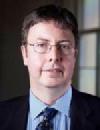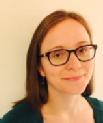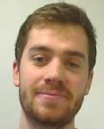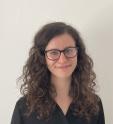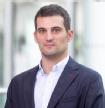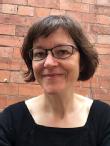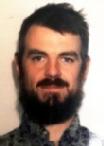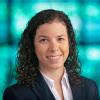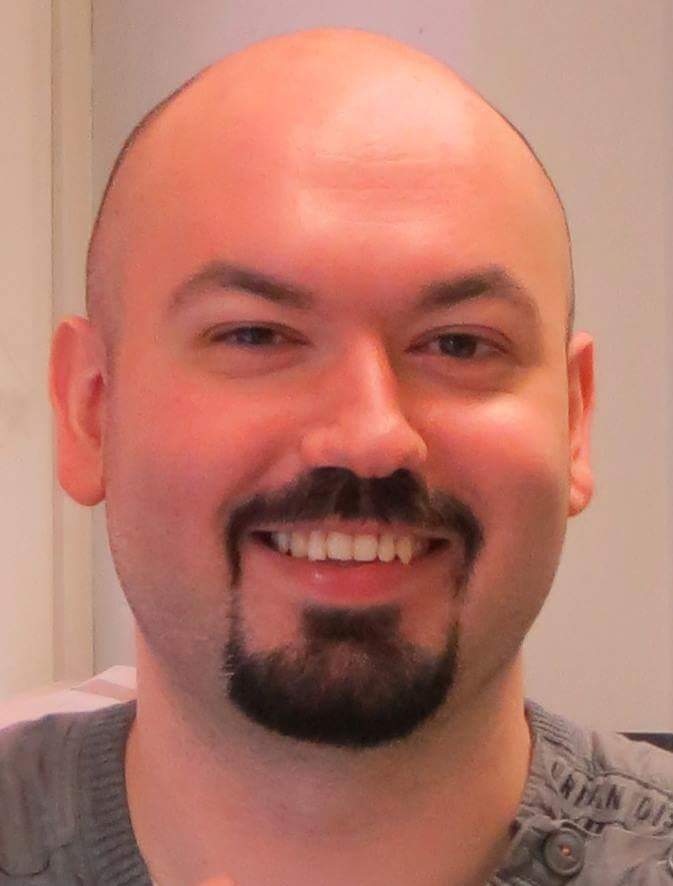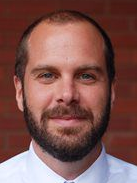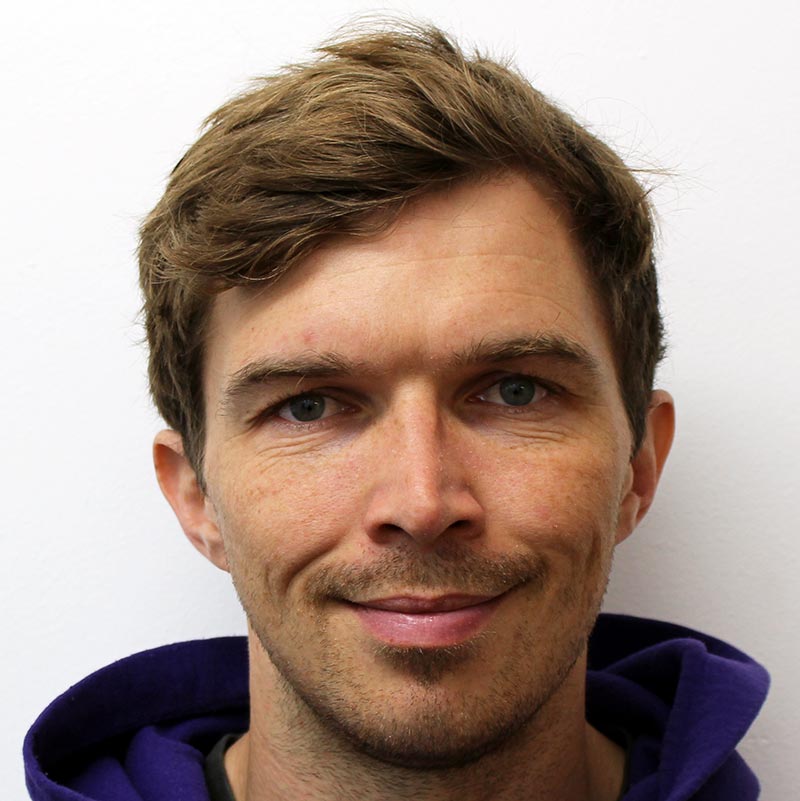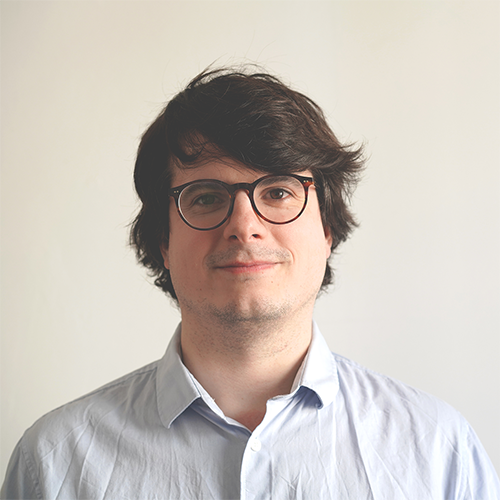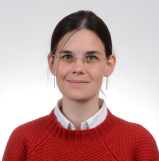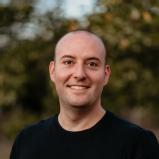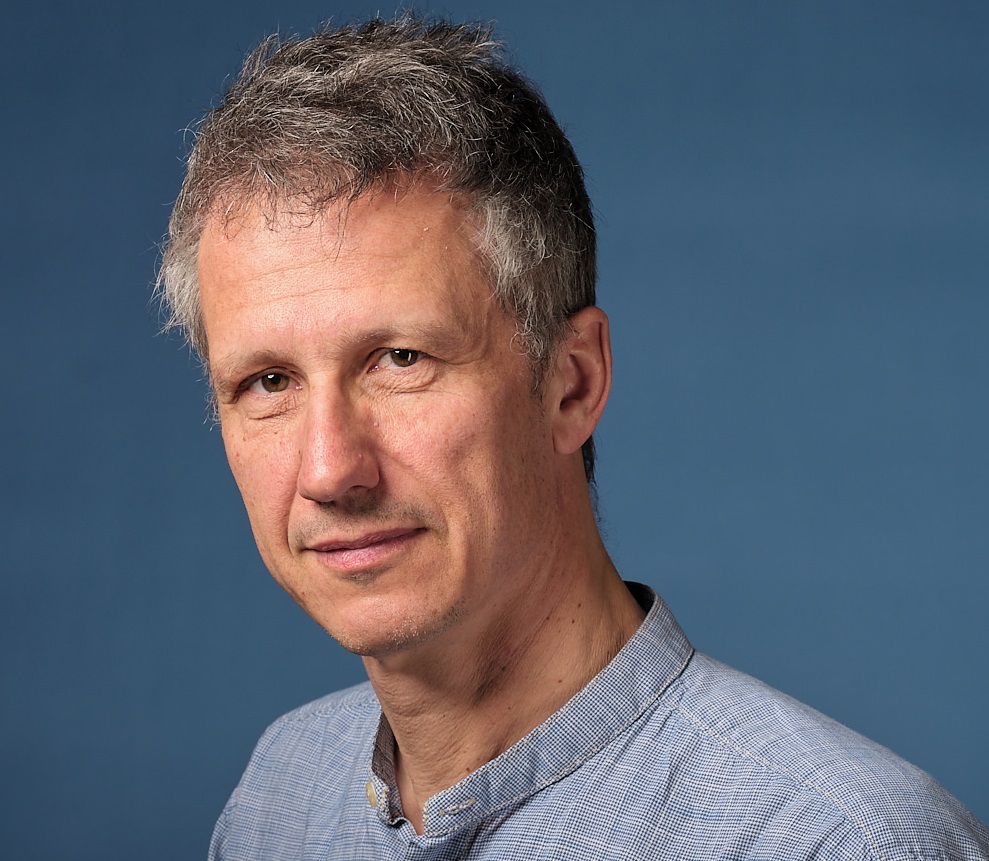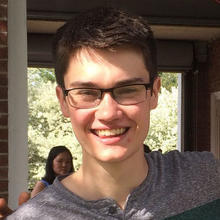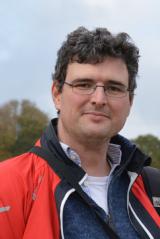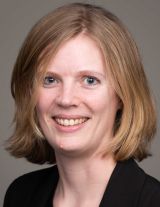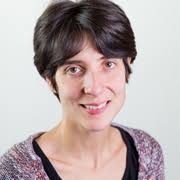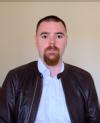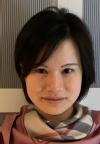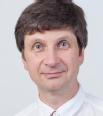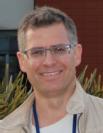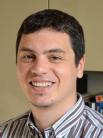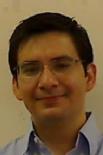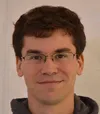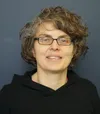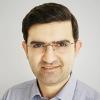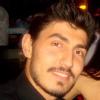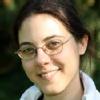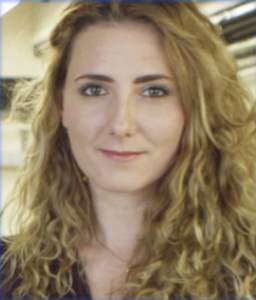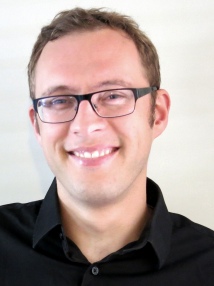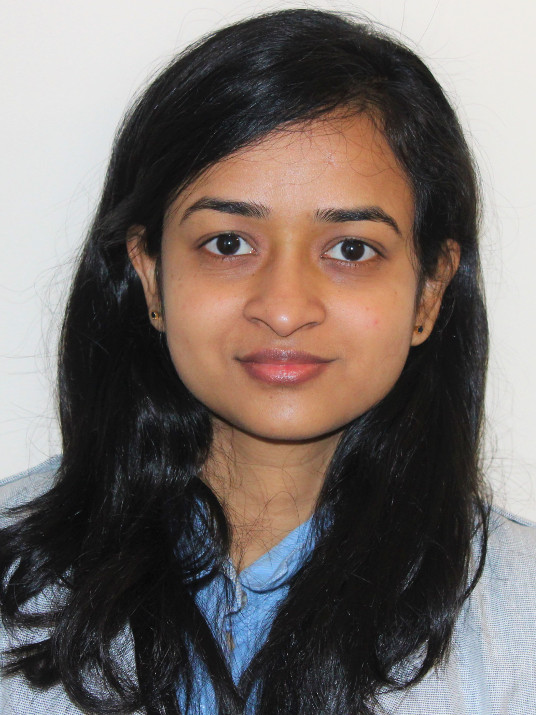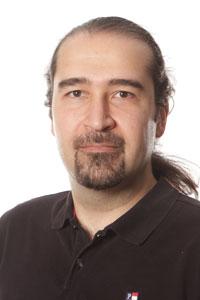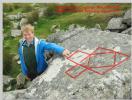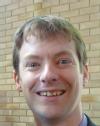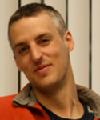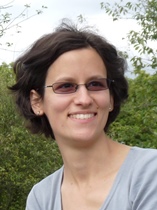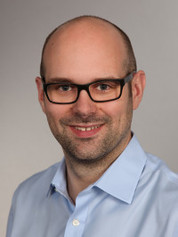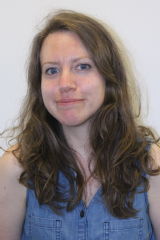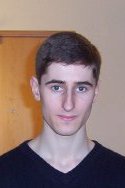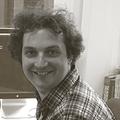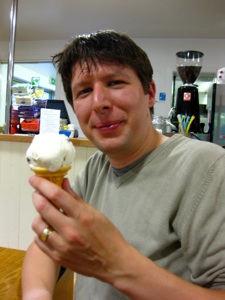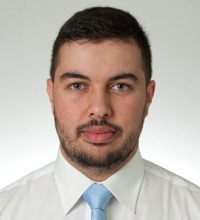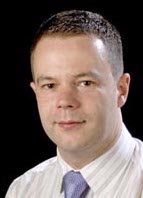Seminars
WCPM hosts regular seminars where we invite speakers working both in fundamental methodology and on applications of predictive modelling and UQ.
These seminars have been running since October 2016 and take place on Mondays at 1pm, with a focus on all aspects of research involving significant computation. The majority of seminars are held in person and for Term 2 of the 2025-2026 academic year talks will take place in IMC 0.004. Please see details of each seminar below to confirm the format.
If you would like to be kept informed of upcoming seminars, please sign up at Info | wcpm-seminar@newlistserv.warwick.ac.uk - listserv.warwick.ac.uk. Note this link does not work in all browsers - it does work in Microsoft Edge.
Details of past and upcoming presentations are below.
Upcoming Seminars
WCPM Seminar: Apala Majumdar (Strathclyde)
Solution Landscapes in the Landau-de Gennes theory for Nematic Liquid Crystals: Analysis, Computations and Applications
Professor Apala Majumdar
Abstract:
Nematic liquid crystals are classical examples of partially ordered materials that combine fluidity with the order of crystalline solids. They are the working material of a range of electro-optic devices i.e. in the liquid crystal display industry and more recently, they are used in sensors, actuators, elastomers, security applications and pathological studies.
We review the celebrated Landau-de Gennes theory for nematic liquid crystals and focus on the modelling of nematics confined to thin quasi-2D systems, with reference to 2D polygons. We perform asymptotic analysis in certain distinguished limits, encoded in terms of geometrical, material and temperature-dependent parameters, accompanied by exhaustive numerical studies of solution landscapes that include stable and unstable solution branches for these systems. There are several numerical challenges associated with the numerical computation of the unstable solution branches and their unstable directions, for which we use the powerful High-Index Shrinking Optimisation Dimer Method. In the last leg of the talk, we discuss the mathematical modelling of some recent experiments on nematic shells and doped bent-core liquid crystals, to illustrate the synergistic links between theory, experiment and novel applications.
All collaborations will be acknowledged throughout the talk.
Short Biography:
Apala Majumdar is an internationally known expert in the mathematics and modelling of liquid crystals and their applications. She is Full Professor of Applied Mathematics at the University of Strathclyde. She received her PhD in applied mathematics from the University of Bristol in 2006, where she was also a CASE student with Hewlett Packard laboratories. She worked in Oxford as a research fellow, was appointed as a faculty member at the University of Bath in 2012 and moved to Strathclyde in 2019. Apala's research programme is strongly interdisciplinary and her scientific achievements and service to the community have been recognised by several national prizes - a London Mathematical Society Anne Bennett Prize in 2015, two prizes from the British Liquid Crystal Society in 2012 and 2020 respectively, an Academic Leader award from the FDM Everywoman in Technology awards and a Suffrage Science Award for inspirational women in STEM in 2020, and an international Humboldt Foundation Friedrich Wilhelm Bessel Award in 2022. Apala has worked extensively with researchers around the world - UK, Europe, Asia, North and South America, and is also the Associate Dean for International Research for the Faculty of Science at the University of Strathclyde. More details about her research and activities can be found at https://www.strath.ac.uk/staff/majumdarapalaprofessorLink opens in a new window
To join the meeting online Click here to join the meeting.Link opens in a new window
More…Upcoming Seminars (2026)
|
Date |
Speaker | Presentation | |
| 19 Jan | Balazs Ujfalussy, Wigner Research Centre |
Title: Superconducting properties of Fe/Au/Nb heterostructures form first principles |
|
| 26 Jan |  |
Steven Pierson, JLR |
Title: Industrial Computer Aided Engineering: The “Why”, the “What” and the “how”. |
| 02 Feb |  |
Linn Leppert, University of Twente |
Title: Excitons in low-dimensional metal-halide perovskites from first principles |
| 09 Feb | Vanessa Ward, Durham University |
Title: TBC |
|
| 16 Feb | 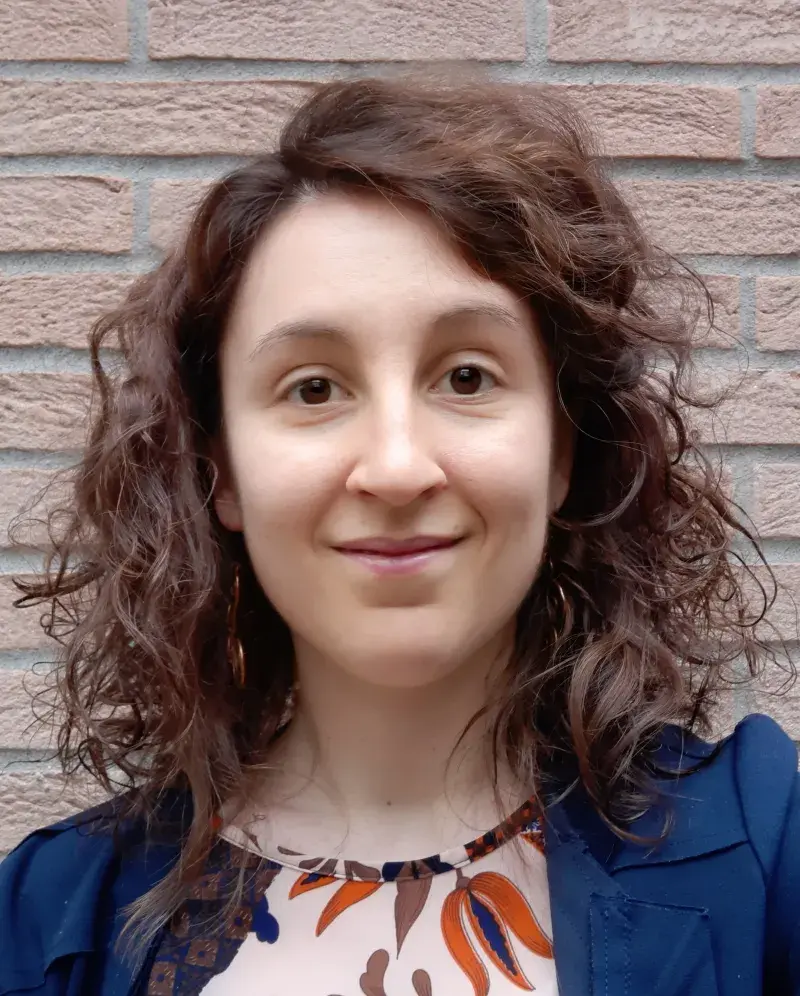 |
Eleonora Ricci, University of Edinburgh |
Title: TBC |
| 23 Feb |  |
Solveig Aamlid, University of British Columbia |
Title: TBC |
| 02 Mar | Brennon Shanks, Institute of Organic Chemistry and Biochemistry of the Czech Academy of Sciences |
Title: TBC |
|
| 09 Mar |  |
John Wilkinson, UKRI, ISIS Muon Group |
Title: TBC
|
| 16 Mar | Graeme O'Dowd, JLR |
Title: Data-driven Modelling in Battery Management Systems |
|
Past Seminars (2025)
| 1 Dec |  |
Dennis Prangle, Bristol |
Talk Title: Inference for State Space Models with Long Data by Variational Methods |
| 24 Nov |  |
Mark Girolami, Cambridge |
Talk Title: Statistical Finite Element Methods |
| 17 Nov |  |
Simone Köcher, Research Centre Jülich |
Talk Title: Synergy of Theory and Experimental NMR in Energy Material Research |
| 10 Nov | Edwina Yeo, UCL |
Talk Title: A theoretical maximum for bacterial surface adhesion in fluid flow |
|
| 3 Nov |  |
Emma Davis, Warwick |
Talk Title: Modelling infectious diseases: vectors, branching processes and low prevalence dynamics
|
| 27 Oct | Nick Tawn, Warwick |
Talk Title: Annealed Leap-Point Sampler for Multimodal Target Distributions |
|
| 20 Oct |  |
Kirk Bevan, McGill University |
Talk Title: Mapping Device Current Flow Concepts to Electrochemistry
|
| 13 Oct |  |
Luke Davis, Edinburgh |
Talk Title: Stochastic geometry of active matter |
| 06 Oct |  |
Peng Wang, Warwick |
Talk Title: An Emerging Electron Microscopy Imaging Technology for Physical and Biological Sciences: 4D STEM Electron Ptychography |
|
|
|||
| 30 Jun | Jincheng Zhang, Warwick |
Physics-informed machine learning for wind energy applications |
|
| 23 Jun |  |
Graeme Day, Southampton |
Prediction-led Discovery of Functional Molecular Organic Crystals |
| 16 Jun |  |
Eduardo Mendive Tapia, University of Barcelona |
Magnetostructural properties of materials at finite temperature by means of magnetically constrained supercell calculations. |
| 9 June |  |
Louise Dyson, Warwick |
Data-rich but time-poor: challenges in real-time pandemic modelling |
| 2 June |  |
Robert-Jan Slager, Cambridge |
Quantum geometry beyond single flat bands and Euler exact projected entangled pair ground states |
| 19 May |  |
Subhash Lakshminarayana, Warwick |
Computational Methods for Enhancing Power System Resilience to Cyber Attacks Abstract |
| 12 May |  |
Hussein Rappel, Exeter |
Probabilistic Logic for Creating Virtual Populations |
| 28 Apr |  |
Rebecca Nealon, Warwick |
Adaptive Particle Refinement in Smoothed Particle Hydrodynamics |
| 10 Mar |  |
Syma Khalid, Oxford |
Computational microbiology of the E. coli cell envelope: successes and challenges |
| 03 Mar |  |
Ivana Savic, KCL |
First principles simulations of electron-phonon coupling and thermoelectric transport in PbTe |
| 24 Feb |  |
Alice Cobella, Warwick |
Modelling severity of emerging epidemics via state-space models and the lifebelt particle filter. |
| 17 Feb |  |
Ryan Requist, IRB |
Strategies for including non-adiabatic effects in ab initio materials modeling |
| 03 Feb |  |
Annabel Davies, Bristol |
Statistical physics and complex networks in meta-analysis: from random walks to hypergraphs |
| 27 Jan |  |
James Kermode, Warwick |
Applying Scientific Machine Learning at the Electronic and Atomistic Scales to Model Materials Failure Processes |
| 20 Jan |  |
Jakub Lengiewicz, Luxembourg Institute of Science and Technology |
Towards Deep Learning Surrogate Modelling with Uncertainty Quantification in Mechanics |
| 13 Jan | Naomi Hirayama, Warwick |
Theoretical Study on Local Structures in Fe-based Amorphous Alloys |
Past Seminars (2023/24)
Past Seminars (2022/23)
|
Date |
Speaker | Presentation | |
| 19th June |  |
Rocco Martinazzo (Università degli Studi di Milano) |
Quantum dynamics with a multitude of electronic states: from electronic friction to quantum hydrodynamics of coupled e-n systems |
| 12th June | 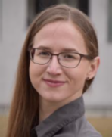 |
Zsuzsanna Koczor-Benda (University of Warwick) |
Computational molecular design for terahertz detection and surface-enhanced applications |
| 5th June |  |
Ferran Brosa Planella (University of Warwick) |
Asymptotic methods for lithium-ion battery models |
| 22nd May | 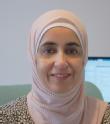 |
Randa Herzallah (University of Warwick) |
Fully Probabilistic Control for Quantum Systems |
| 15th May |  |
Mohsen Mirkhalaf (University of Gothenburg) |
Deep-learning-enhanced multi-scale modelling of composites |
| 24th April |  |
Long Tran-Tranh (University of Warwick) |
Sequential Decision Making Under Resource Constraints and Potential Applications to Materials Sciences |
| 13th March |  |
Edina Rosta (UCL) |
Enhanced Sampling Simulations of Biomolecular Systems |
| 6th March |  |
Yi Yu (University of Warwick) |
Detecting and localising changes in different environments |
| 27th Feb |  |
Matt Ismail (University of Warwick) |
SCRTP facilities update |
|
13th Feb |
 |
Davide De Focatiis (University of Nottingham) |
A constitutive model for high strain rate properties of amorphous polymers |
| 6th Feb 2023 |  |
Marjolein Dijkstra |
Machine learning and Inverse design of soft materials |
| 30th Jan 2023 |
Hannes Holey (Karlsruhe Institute of Technology) |
Towards multiscale modelling of boundary lubrication |
|
| 23rd Jan 2023 |  |
Nils Hertl (University of Warwick) |
Investigating the dynamics of H atom scattering from surfaces with molecular dynamics simulations |
| 16th Jan 2023 |
Tilmann Hickel (Federal Institute for Materials and Research Testing, Berlin) |
Design of finite temperature materials properties enabled by innovative digital concepts |
|
| 9 Jan 2023 |  |
Volker Deringer (University of Oxford) |
Atomic-scale machine learning for inorganic materials chemistry |
| 28 Nov 2022 | 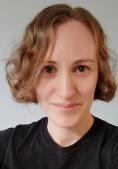 |
Doireann O'Kiely (University of Limerick) |
Moving out of plane: wrinkling and buckling |
| 21 Nov 2022 |  |
Animesh Datta (Warwick University) |
Quantum simulation: An Overview |
| 14 Nov 2022 |  |
Miguel Caro (Aalto University) |
Machine-learning-driven simulation of real carbon materials |
| 7 Nov 2022 | 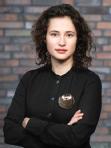 |
Ganna Gryn’ova (Heidelberg Institute for Theoretical Studies) |
Computational Chemistry and Machine Learning of Functional Organic Materials |
| 31 Oct 2022 | 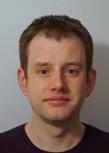 |
Mark Greenaway (Loughborough) |
Resonant tunnelling in graphene-boron nitride transistors |
| 24 Oct 2022 | 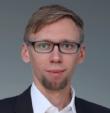 |
Pavlo O Dral (Xiamen University Malaysia) |
Accelerating and Improving Computational Chemistry with Artificial Intelligence / |
| 17 Oct 2022 |
Federico Bosi (UCL) |
The quest for ultralightweight materials: from membranes to architected lattices |
|
| 10 Oct 2022 |  |
Rose K Ceronsky (École |
Extracting Design Principles from Physics-Adapted Machine Learning Problems |
| 3 Oct 2022 | 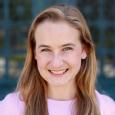 |
Tess E Smidt (MIT) |
Euclidean Symmetry Equivariant Machine Learning for Atomic Systems - |
Past Seminars (2021/22)
|
Date |
Speaker | Presentation | |
| 6 June 2022 | 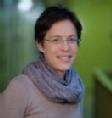 |
Marie Therese Wolfram (University of Warwick) |
Pedestrian Dynamics |
| 30 May 2022 |  |
Gus Hart (Brigham Young University) |
Building Useful Machine-Learned Interatomic Potentials |
| 23 May 2022 | 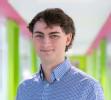 |
Joseph Prentice (University of Oxford) |
Efficient computation of optical properties of large-scale heterogeneous systems |
| 16 May 2022 | 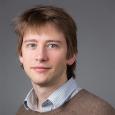 |
Matthias Sachs (University of Birmingham) |
HAL: Hyperactive Bayesian Learning for Molecular Force Fields |
| 9 May 2022 |  |
Chiara Gattinoni (London South Bank University) |
Electrostatic effects in nanoscale ferroelectrics |
| 14 March 2022 |  |
Olga Bagerra Oxford Brookes University |
Recent developments on discovering structure-function relations of soft tissues. Case study: the knee meniscus |
| 28 February 2022 |
Sarbani Patra University of Warwick |
The dynamics of photodissociation and isomerization reactions – Classical and quantum aspects |
|
| 21 February 2022 |
Emilio Martinez-Paneda Imperial College London |
Predictive modelling of multi-physics material degradation challenges: batteries, corrosion and hydrogen embrittlement |
|
| 14 February 2022 |
Julia Brettschneider University of Warwick |
Exploratory data analysis and non-parametric methods for point pattern analysis for fluorescent microscopic images and digital X-ray detectors |
|
| 07 February 2022 |
Thomas Swinburne Marseille Interdisciplinary Nanoscience Center (CINaM) |
Geometric use of linear models in high accuracy or high throughput simulations of defects |
|
| 31 January 2022 |
Giovanni Porta Politecnico di Milano |
Upscaling of solute transport and surface reactions in porous media |
|
| 24 January 2022 |
|
Celia Reina University of Pennsylvania |
Predicting Non-equilibrium Phenomena: A Journey Through Space and Time Scales |
| 17 January 2022 |
Laurent Béland Queen’s University, Ontario |
Simulating nuclear materials across multiple time and length scales |
|
| 10 January 2022 |
Jerry Wang Carnegie Mellon University |
Let's Get Moving: Modeling and Simulation of Active Matter from the Pico-Scale to the Pedestrian-Scale |
|
| 06 December 2021 |
Juliana Morbec University of Keele |
Exploring surfaces and interfaces with first-principles quantum mechanical simulations |
|
| 29 November 2021 |
Brendan Spillane University of Warwick |
Software, IP and Warwick Innovations |
|
| 23 November 2021 |
Rebecca Nichols University of Oxford |
Enabling functional materials with microscopy and modelling |
|
| 22 November 2021 |
Michele Ceriotti Ecole Polytechnique Federale de Lausanne |
Keynote seminar: Atomistic simulations in the age of machine learning |
|
| 15 November 2021 |
Ryosuke Jinnouchi Toyota Central R&D Labs |
On-the-fly machine-learned inter-atomic potentials: method and applications |
|
| 08 November 2021 |
Jörg Schröder Universität Duisburg-Essen |
Characterization of magneto-electric composites: An algorithmic scale-bridging scheme |
|
| 01 November 2021 |
Sam Magorrian University of Warwick |
Moiré superlattice effects in twisted bilayers of 2D semiconductors |
|
| 25 October 2021 |
University of Oxford |
Exploring reactions mechanisms through automation and machine learning |
|
| 18 October 2021 |
Queen Mary University London |
Sustainably synthesised metal-organic frameworks for sustainability applications |
|
| 11 October 2021 |
Fordham University |
Scientific opportunities of automating materials synthesis: a case study of hybrid organic-inorganic hybrid perovskites |
|
| 04 October 2021 |
Aix Marseilles University |
Nonadiabatic dynamics in the long timescale: the next challenge in computational photochemistry |
|
Past Seminars (2020/21)
For previous speakers please click here.
|
Date |
Speaker | Presentation | |
| 21 June 2021 | 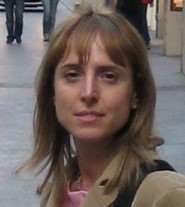 |
Monica Riva |
Flow and transport: the role of Sub-Gaussian features in porous systems |
| 14 June 2021 | 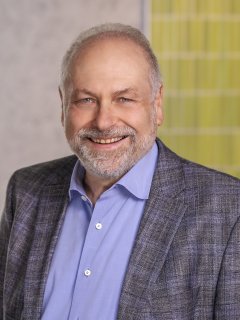 |
Professor Pablo Debenedetti |
The Phase Behaviour of Supercooled Water: A Computational Perspective |
| 7 June 2021 | 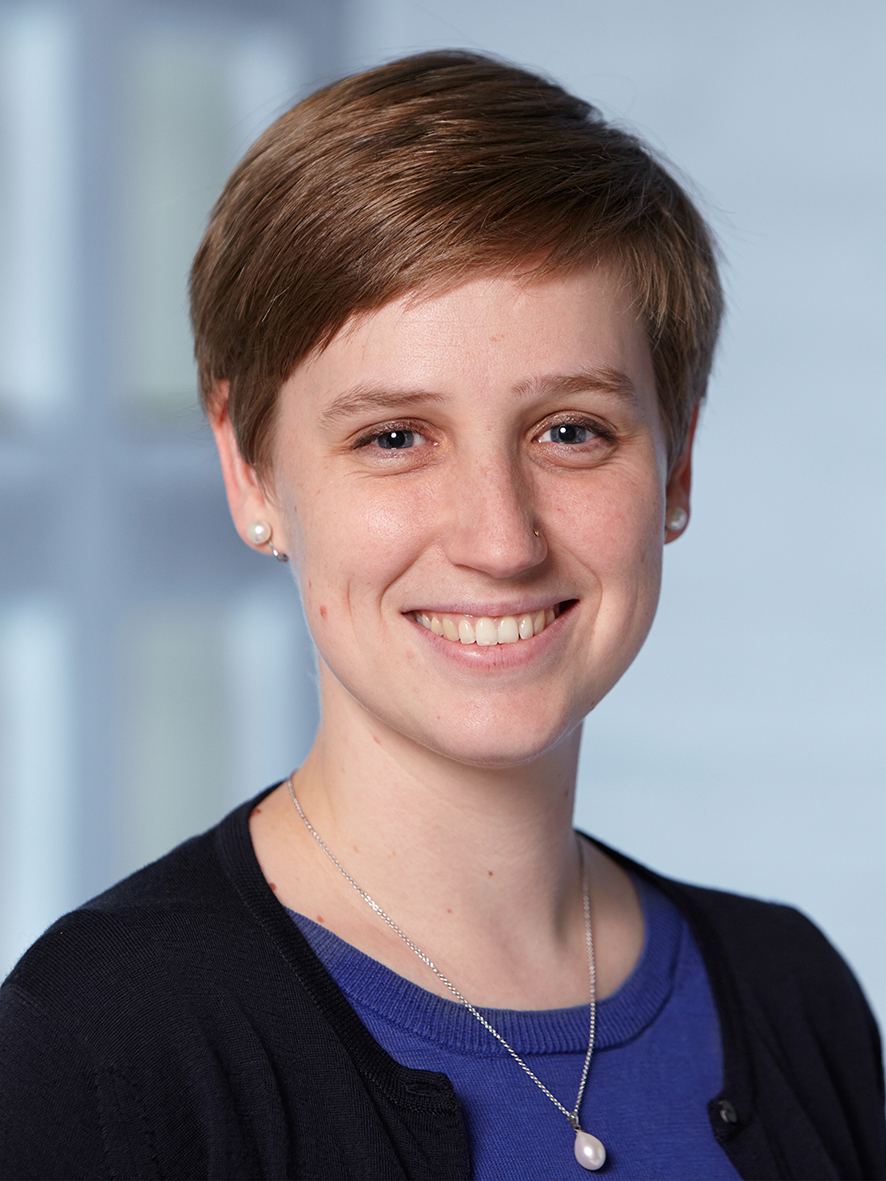 |
ETH Zürich |
Combining Machine Learning and Molecular Dynamics Simulations |
| 24 May 2021 | 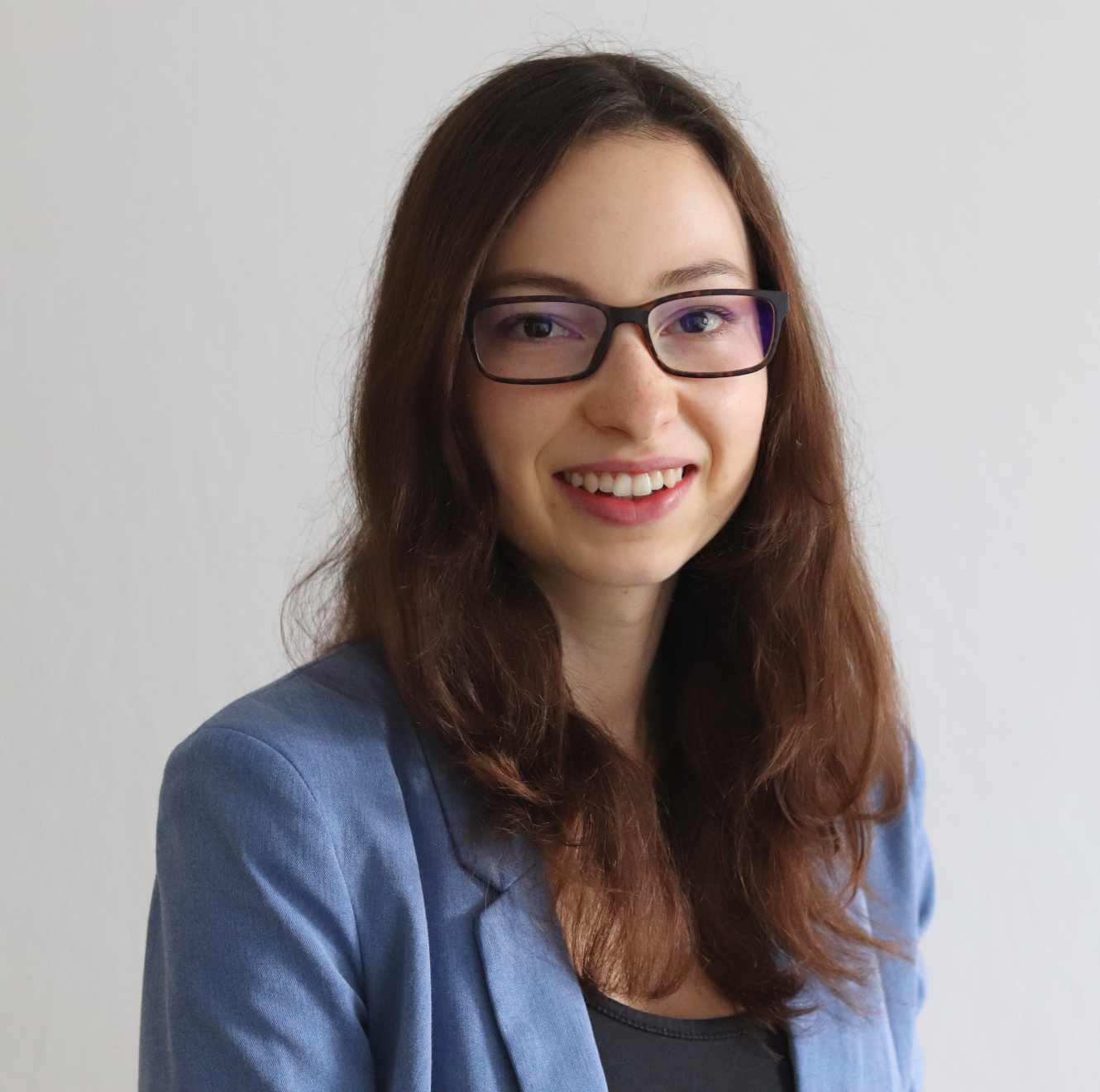 |
University of Warwick |
Deep Learning for Excited States of Molecules: Efficient Prediction of Orbital Energies and Photoemission Spectra |
| 17 May 2021 | 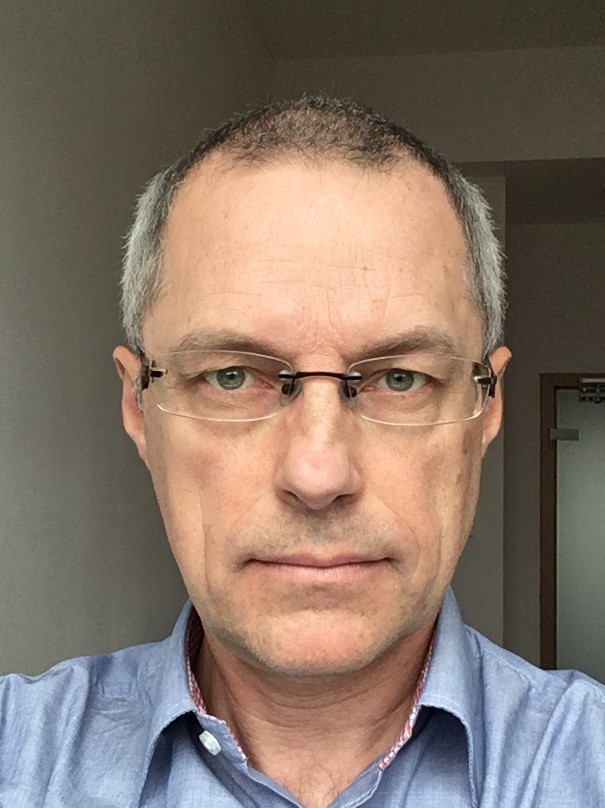 |
IPPT Pan |
Diffuse interface modelling of microstructures and propagating instabilities in shape memory alloys |
| 10 May 2021 | 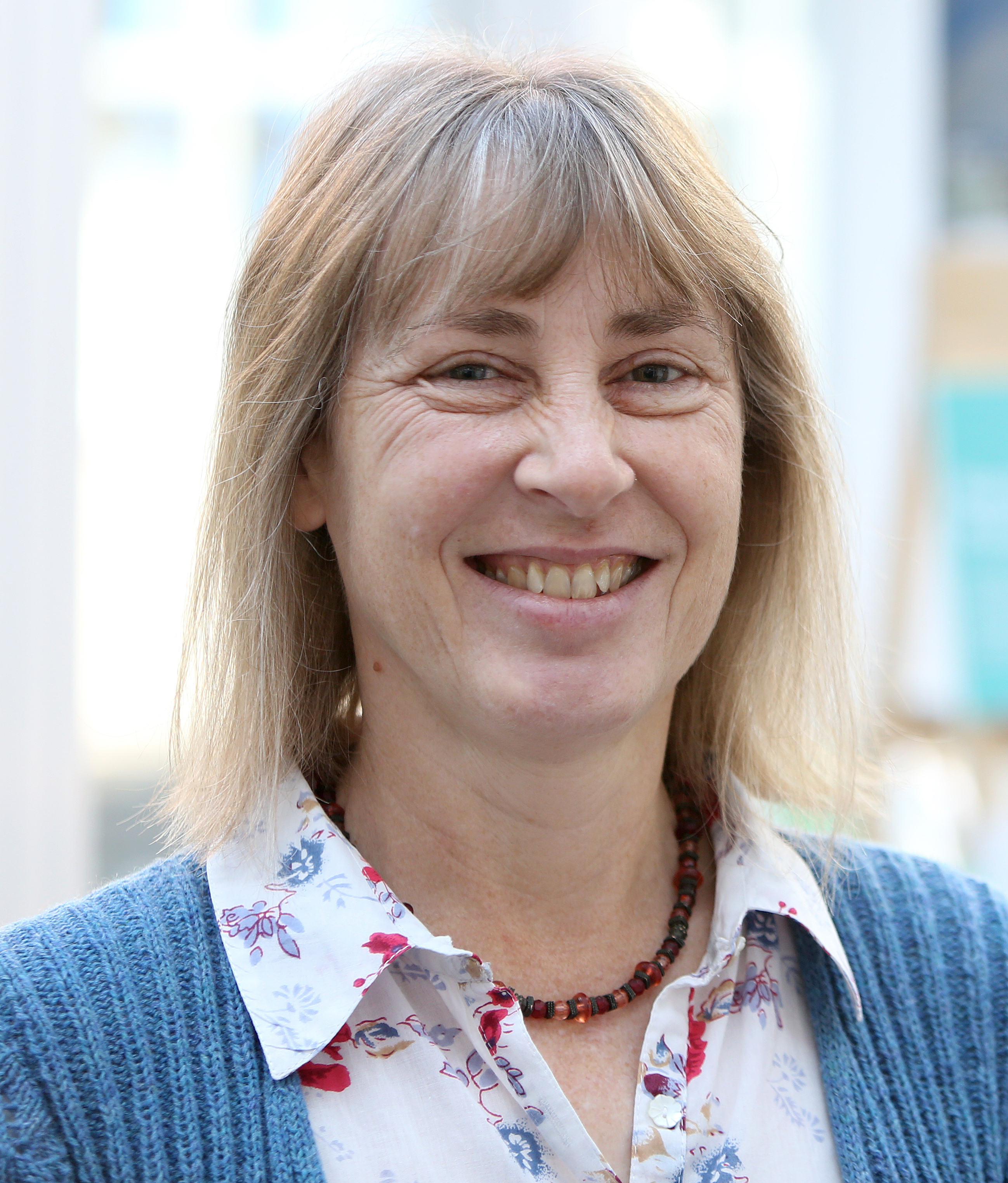 |
University of Nottingham |
TexGen - Open-Source Software for Geometric Modelling of Textile Structures |
| 26 Apr 2021 | 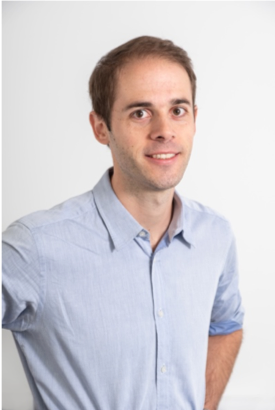 |
Loughborough University |
New Analysis Tools for Electronic Structure Computations: From Numbers to Chemical Insight |
| 25 Mar 2021 | 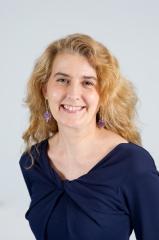 |
King's College London / London Thomas Young Centre for the Theory and Simulation of Materials |
From Green Tea to Snow Crystals: Understanding Complex Systems with the Aid of Supercomputers |
| 8 Mar 2021 | 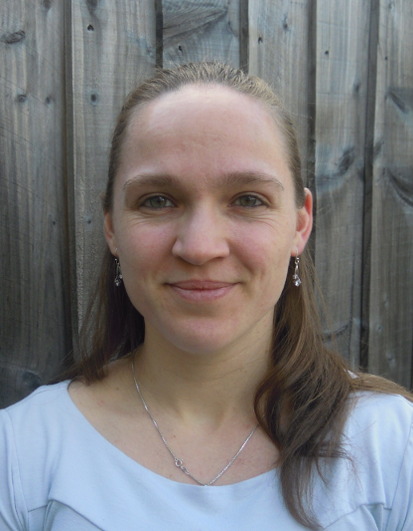 |
Celine Merlet |
Combining NMR, DFT calculations and mesoscopic models to improve our understanding of supercapacitors |
| 1 Mar 2021 |  |
Stefan Klus |
Data-driven analysis of complex dynamical systems |
| 22 Feb 2021 | 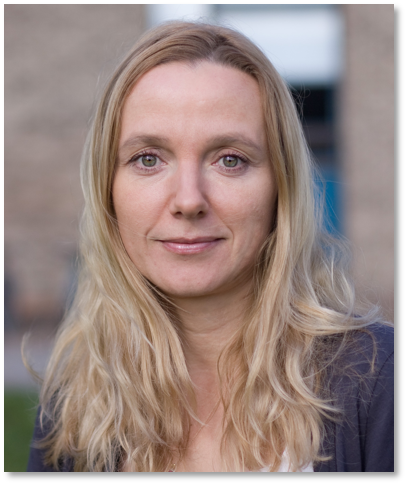 |
University of Nottingham |
A high-throughput computational screening of porous materials for biogas purification |
| 15 Feb 2021 | 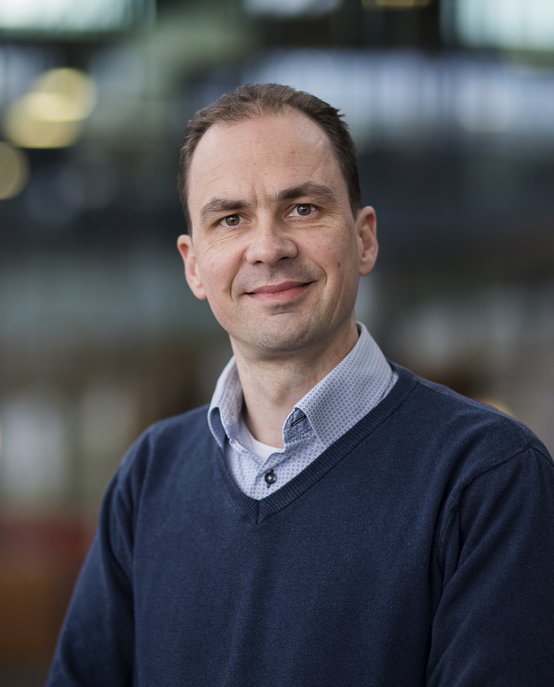 |
University of Technology, Eindhoven |
The mechanical behaviour of tungsten under irradiation and heat loads |
| 8 Feb 2021 | 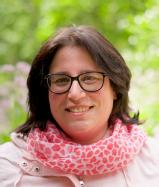 |
University of Manchester |
Modelling insights into coatings for corrosion protection |
| 1 Feb 2021 | 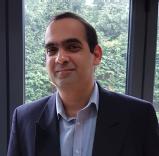 |
Vikram Deshpande |
Micro-architected solids: does toughness characterise fracture? |
| 25 Jan 2021 | 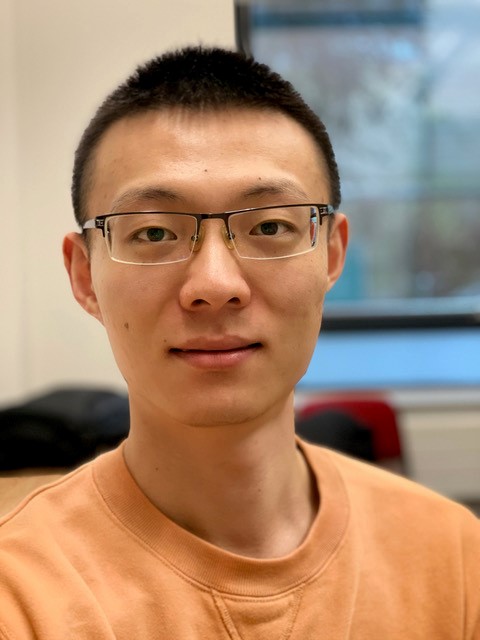 |
Zhen Li |
From deformation potential extraction to thermoelectric transport simulations: |
| 18 Jan 2021 |  |
University of Warwick |
Stochastic activation and bistability in a biological regulatory network |
| 8 Dec 2020 |
|
Bora Karasulu University of Warwick |
First-Principles Modelling of All Solid-State Battery (ASSB) Materials Abstract |
| 30 Nov 2020 |
|
University of Birmingham |
Peculiar solute diffusion mechanisms in hcp-Ti Abstract |
|
16 Nov 2020 |
 |
Forschungszentrum Jülich |
Effects of in vivo conditions on amyloid-βaggregation: computational approaches Abstract |
| 9 Nov 2020 |
|
Cardiff |
Multiscale atomistic modelling applied to materials design and heterogeneous catalysis |
| 2 Nov 2020 |
|
CNAM |
Propagating plastic instabilities in planar architectured materials |
| 26 Oct 2020 |
|
University of Warwick |
Towards Simulated Absorbtion Spectra and Energy Transfer in Molecule-Inorganic Systems |
| 19 Oct 2020 |
|
University of Southampton |
Ubermag: Interactive micromagnetic simulations in Jupyter |
| 12 Oct 2020 |
|
University of Warwick |
Dislocation distributions at finite temperature |
| 5 Oct 2020 | 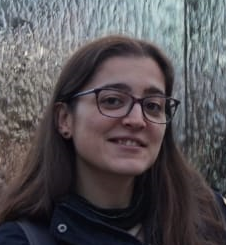 |
University of Warwick |
Feedback control of falling liquid films using a hierarchical model approach |
Past Seminars (2019/20)
Past Seminars (2018/19)
| Date | Speaker | Presentation | |
| 24 June 2019 |
Theory & Simulation of Condensed Matter Group, Physics, King's College London |
Size and shape dependence of activity of metallic nanoparticles
|
|
| 17 June 2019 |  |
School of Computing, University of Leeds |
Interactive visualization for the design, prototyping and development of research software
|
| 10 June 2019 |
College of Engineering, Swansea University |
Mechanics of geometrically disordered cellular materials
|
|
| 03 June 2019 |
Department of Psychology, University of Warwick |
A Bayesian and Frequentist Multiverse Pipeline for Multinomial Processing Tree Models – Applications to Recognition Memory
|
|
| 20 May 2019 |
Institute for Future Transport and Cities, |
Atomic Scale Modelling of Diffusion in Energy Materials
|
|
| 13 May 2019 |  |
Mathematics Institute, University of Warwick |
Physics+data-driven interatomic potentials based on permutation-invariant polynomials
|
| 29 April 2019 |
University of Leeds |
Atomistic spin dynamics with a quantum thermostat
|
|
| 11 March 2019 |
Fritz-Haber Institute, Berlin |
Nuclear quantum effects in weakly bonded systems
|
|
| 4 March 2019 |
Warwick Medical School |
The light microscopy imaging pipeline at Warwick Medical School
|
|
| 25 Feb 2019 |
Institute for Risk and Uncertainty, Liverpool |
Connections between Rare-Event Simulation and Bayesian Inference
|
|
| 18 Feb 2019 |
John Huber – University of Oxford, Department of Engineering Science. Ananya Renuka Balakrishna – University of Minnesota, Department of Aerospace Engineering and Mechanics |
Phase field methods for simulating ferroelectrics and other materials
|
|
 |
|||
| 11 Feb 2019 |  |
CEA Saclay, France |
Free energy landscape of point defects in body centered cubic metals |
| 4 Feb 2019 |
|
Warwick Manufacturing Group |
Multi-agent Deep Reinforcement Learning with Extremely Noisy Observations
|
| 28 Jan 2019 |
Babraham Institute, Cambridge |
Modelling of Chromosome Structure and Function
|
|
| 21 Jan 2019 |
|
Warwick Mathematics Institute / Turing Institute |
Predicting risk of hospital admission and readmission of Scottish population; Measuring Sample Quality with diffusions
|
| 14 Jan 2019 |  |
Elementary Particle Physics Group, Warwick Physics |
Reconstruction of neutrino-induced events in Liquid-Argon Time-Projection Chamber (LArTPC) Detectors
|
| 3 Dec 2018 |
Institute for the Physics of Living Systems, University College London |
Minimal coarse-grained models for biological assembly
|
|
| 26 Nov 2018 |
School of Engineering, University of Warwick |
Stochastic Simulation of Reaction-Diffusion Systems
|
|
| 19 Nov 2018 |
Faculty of Engineering, Department of Materials, Imperial College |
Simulating charged defects in 2d materials: how we taught electronic screening to machines
|
|
| 12 Nov 2018 |
Warwick Centre for Predictive Modelling, School of Engineering, University of Warwick |
Modifying the bandstructure of half-Heuslers to improve their thermoelectric power factor
|
|
| 05 Nov 2018 |
Faculty Research Centre in Flow Measurement and Fluid Mechanics, Coventry University |
Monte Carlo methods for massively parallel architectures
|
|
| 29 Oct 2018 |
|
Warwick Centre for Predictive Modelling, University of Warwick |
Electron-spin mediated distortion in metallic systems
|
| 15 Oct 2018 |
Warwick Centre for Predictive Modelling, University of Warwick |
First principles design of new multiferroic materials
|
|
| 08 Oct 2018 |  |
Andrew Davis UK Atomic Energy Authority, Culham Centre for Fusion Energy, Abingdon |
High Performance and CAD based Radiation Transport
|
Past Seminars (2017/18)
| Date | Speaker | Presentation | |
| 25 June 2018 |
|
School of Mathematics and Physics |
Variations on kernel density estimation |
| 18 June 2018 |
|
Department of Mathematical Sciences |
A performance portable framework for molecular simulations |
| 11 June 2018 |
|
Physics Department |
A predilection for precise prediction: trying to model materials reliably |
|
21 May 2018 |
|
School of Biological and Chemical Sciences, Queen Mary University of London (QMUL) |
Modelling aggregation-induced emission in organic crystals |
| 16 May 2018 |
University of Texas at Austin |
Correlating structure and function for nanoparticle catalysts Abstract Slides |
|
| 30 Apr 2018 |
Chemical and Process Engineering |
Multiscale modelling of surfaces and interfaces |
|
| 30 Apr 2018 |
|
Warwick Mathematics Institute |
Predicting Rare Events via Large Deviations Theory: Rogue Waves and Motile Bacteria Abstract Slides |
| 12 Mar 2018 |
Warwick Centre for Predictive Modelling, School of Engineering, University of Warwick |
Large-scale real-space electronic structure calculations Abstract Slides |
|
| 05 Mar 2018 |
Department of Statistics, University of Oxford |
Biologically inspired de novo protein structure prediction Abstract Slides |
|
| 26 Feb 2018 |
Mechanical Engineering, University of Michigan, Ann Arbor, USA |
Large-scale real-space electronic structure calculations Abstract Slides |
|
| 19 Feb 2018 |
Tribology and Wear, Fraunhofer IWM, Freiburg |
Tribology of diamond and silicon: atomic-scale insights from computers simulations Abstract Slides |
|
| 12 Feb 2018 |
Department of Aeronautics, Faculty of Engineering, Imperial College London |
Uncertainty Quantification and Aircraft Engines Abstract Slides |
|
| 05 Feb 2018 |
Department of Physics and Astronomy, University of Sheffield |
Unusual Dynamic Processes in Polymer Nanocomposites Abstract Slides |
|
| 29 Jan 2018 |
Warwick Centre for Predictive Modelling, School of Engineering, University of Warwick |
Transport in two-dimensional materials Abstract Slides |
|
| 22 Jan 2018 |
Met Office |
Modelling clouds for weather, climate and beyond… Abstract Slides |
|
| 15 Jan 2018 |
Faculty of Engineering, University of Bristol |
Multi-scale cellular automata finite element (CAFE) framework for fracture in heterogeneous materials: to exascale via coarrays/MPI hybrid programming Abstract Slides |
|
| 4 Dec 2017 |  |
Ben Chapman |
Ion cyclotron emission as a diagnostic of the time evolution |
 |
Demetris Marnerides WCPM/WMG |
Deep Learning for the High Dynamic Range Imaging Pipeline |
|
| 27 Nov 2017 |  |
Magnus Richardson Zeeman Mathematical Biology Institute, Warwick |
Neurons, Synapses and neuromodulators |
| 23 Nov 2017 |
Bálint Aradi |
DFTB+, the fast way of doing quantum mechanics Abstract Slides |
|
| 06 Nov 2017 |  |
Felix Hofmann Department of Engineering Science University of Oxford |
Atomic Scale Defects: Probing Structure and Function Abstract Slides |
| 30 Oct 2017 |  |
Laura Ratcliff, Imperial College |
Upscaling DFT Capabilities for the Many Thousand Atoms Regime |
 |
Jolyon Aarons, Warwick Physics |
Metallic DFT On Nanoparticles with Thousands of Atoms |
|
 |
Luigi Genovese, L_Sim, CEA Grenoble |
Opportunities from Accurate and Efficient Density Functional Theory |
|
| 23 Oct 2017 |  |
Juergen Branke Warwick Business School |
|
| 16 Oct 2017 |  |
Reinhard Maurer Department of Chemistry, University of Warwick |
Controlled Self-Assembly, Switching, and Catalysis: |
| 9 Oct 2017 |  |
Gabriele Sosso Department of Chemistry, Unviersity of Warwick |
Predicting Crystal Nucleation Rates via Atomistic Simulations: The Case of Ice Nucleation Abstract Slides |
Past Seminars (WCPM & CSC, 2016/17)
| Date | Speaker | Presentation | |
| 26 June 2017 |
WCPM & School of Engineering, University of Warwick |
Modular Bayesian uncertainty assessment for structural health monitoring
|
|
|
WCPM & School of Engineering, University of Warwick |
Quantum transport simulations for understanding the thermoelectric effect in nanocomposites
|
||
| 19 June 2017 |
Research Software Engineering, University of Sheffield |
Bad software and how it's ruining your research
|
|
| 12 June 2017 |
Mathematics Institute and Center for Complexity Science, University of Warwick |
Oscillatory kinetics in cluster-cluster aggregation
|
|
| 05 June 2017 |
Department of Chemistry, University of Memphis |
The role of transition metals in the structure and reactivity of astrochemicals
|
|
| 22 May 2017 |
Engineering and Materials Science, Queen Mary University of London |
Cracking me softly – the mechanics of hyperelastic Kirigami structures
|
|
| 15 May 2017 |
Physical Sciences, University of Kent |
First principles design of new multiferroic materials
|
|
| 13 Mar 2017 |
Warwick Life Sciences |
Design principles of cellular systems from evolutionary and systems dynamics perspectives |
|
| 6 Mar 2017 |
|
Reading Chemistry |
Computational thermodynamics: how to calculate phase diagrams without the fuss |
| 27 Feb 2017 |
Karlsruhe Institute of Technology |
Contact and cavitation: Computer models for tribological processes |
|
| 20 Feb 2017 |
|
Warwick Physics |
The dynamics and flexibility of biomedically important proteins: a combined computational/experimental approach to tackle antimicrobial resistance (AMR)
|
| 13 Feb 2017 |
|
Warwick Maths / WMG |
Computational and mathematical modelling of acoustic linears in aircraft engines
|
| 6 Feb 2017 |
|
Head of Research Software Development, UCL |
Computational Science As A Service: A new institutional model for research software engineering
|
| 30 Jan 2017 |
|
University of Bristol |
What is good research software, how can it be engineered, and is it deliverable within the constraints of academic projects?
|
| 23 Jan 2017 |
|
Connected Systems Research Group, School of Engineering, Warwick |
Exploring the Potential for FPGA Scientific Computing Research at Warwick
|
| 16 Jan 2017 |
James Elliot |
Interfacial barriers to thermal transport in carbon nanomaterials and polymer-nanotube composites: a molecular modelling study
|
|
| 5 Dec 2016 |
|
Christopher Robertson |
Diabatization strategies for non-adiabatic dynamics: photodissociation of acetylene and NO/Au 3 scattering
Abstract |
| 28 Nov 2016 |
Ali Raeini |
||
| 21 Nov 2016 |
|
David Packwood |
|
| 14 Nov 2016 |
Steve Fitzgerald |
||
| 07 Nov 2016 |
|
Mikhail Poluektov |
|
| 31 Oct 2016 |
Paola Carbone |
||
| 24 Oct 2016 |
David Quigley |
||
| 17 Oct 2016 |  |
Tom Hudson Mathematics Institute, University of Warwick |
|
Past Seminars 2015/2016
| Date | Speaker | Presentation | |
| 31 May 2016 |  |
Ben Graham Department of Statistics, University of Warwick |
|
| 24 May 2016 |   |
Duncan Lockerby School of Engineering, University of Warwick David Stephenson School of Engineering, University of Warwick |
Accelerating a multiscale continuum-particle fluid dynamics model
with on-the-fly machine learning
|
| 17 May 2016 |
Gareth Conduit
Department of Physics, University of Cambridge |
||
| 10 May 2016 |
 |
Torgyn Shaikhina
School of Engineering, University of Warwick |
Machine Learning for predictive modelling based on small biomedical and clinical data
Abstract (PDF), Slides (PDF) |
| 3 May 2016 |
Department of Statistics, University of Warwick
|
Bayesian inference and model selection for stochastic
epidemics and other coupled hidden Markov models
(with special attention to epidemics of
|
|
| 26 Apr 2016 |
Ariel Lozano
Basque Centre for Applied Mathematics |
Bond-selective chemical reactivity from first principles:
|
|
| 8 Mar 2016 |
Judith Rommel
Department of Chemistry, University of Cambridge |
Predictive Multi-scale Modelling - an Interdisciplinary
Perspective and the Case of Density Embedding Methods
|
|
| 1 Mar 2016 |
Department of Physics, University of Warwick
|
Quantum Engineering for electrons and spins
|
|
| 16 Feb 2016 |
Igor Khovanov
School of Engineering, University of Warwick |
Dynamics of Large Fluctuations: from Chaotic Attractors to Ion Channels |
|
| 9 Feb 2016 |
Department of Computer Science,
University of Warwick
|
Image clustering based on camera fingerprints |
|
| 2 Feb 2016 |  |
Scott Habershon Department of Chemistry, University of Warwick |
Progress and perils in predictive computational catalysis Abstract (PDF) |
| 26 Jan 2016 |
 |
Charles Gadd
Warwick Centre for Predictive Modelling, University of Warwick |
Uncertainty Quantification with Gaussian Process Latent
Variable Models |
| 19 Jan 2016 |
Warwick Centre for Predictive Modelling,
University of Warwick |
Uncertainty Quantification Using Deep Gaussian Processes
and Variational Bayesian inference
|
|
| 8 Dec 2015 |
School of Mathematical Sciences, University of Nottingham
|
Novel stochastic thermostats for rigid body dynamics
|
|
| 26 Nov 2015 |
Technische Universität München |
Predictive Coarse-Graining Abstract (PDF), Slides (PDF) |
|
| 17 Nov 2015 |
Department of Physics, University of Cambridge
|
Computational Materials Discovery meets Experiment Abstract (PDF) |
|
| 10 Nov 2015 |
Savvas Triantafyllou |
Towards a multiscale framework for robust simulation of inelastic dynamic processes Abstract (PDF), Slides (PDF) |
|
| 3 Nov 2015 |
Keith Refson |
Reliable Knowledge: How far can we trust electronic structure simulations? Abstract (PDF) |
|
| 27 Oct 2015 |
Manuel Aldegunde |
Exchange-Correlation Functional with Uncertainty
Quantification Capabilities for Density Functional Theory |
|
| 20 Oct 2015 |
Vahid Niasar |
Pore-scale analysis of dynamics of two-phase flow
in porous media |
|
| 13 Oct 2015 |
|
Stela Makri |
Dimensionality Reduction Methods in Predictive Modelling |
| 13 Oct 2015 |
|
Louis Ellam |
Approximate Bayesian Inference for Machine Learning |
| 6 Oct 2015 |
Matteo Icardi |
On the predictive capabilities of multiphase Darcy flow |
|
Past Seminars 2014/2015
| Date | Speaker | Presentation | |
| 25 Jun 2015 |
Nicholas Hine |
Excited state calculations and theoretical spectroscopy of complex nanomaterials using Linear-Scaling Density Functional Theory Abstract (PDF), Slides (PDF) |
|
| 18 Jun 2015 |
Andrew Stuart |
Probabilistic Numerical Methods for Deterministic Differential Equations Abstract (PDF), Slides (PDF) |
|
| 11 Jun 2015 |
Gábor Csányi |
Applying machine learning to quantum mechanics Abstract (PDF), Slides (PDF) |
|
| 4 Jun 2015 |
Shiwei Lan |
Sampling constrained probability distributions using Spherical Augmentation Abstract (PDF), Slides (PDF) |
|
| 28 May 2015 |
Łukasz Figiel |
Computational modelling for performance improvement of polymer nanocomposites Abstract (PDF), Slides (PDF) |
|
| 15 May 2015 |
Peter Brommer |
Uncertainties in classical effective potentials: sources and quantification strategies Abstract (PDF), Slides (PDF) |
|
| 7 May 2015 |
Mark Rodger |
Predictive Modelling: a view from the atomic level Abstract (PDF), Slides (PDF, PPTX) |
|
| 30 Apr 2015 |
David Quigley |
Modelling crystal nucleation and growth Abstract (PDF), Slides (PDF, PPTX) |
|
| 23 Apr 2015 |
Claudia Schillings |
Scaling Limits in Computational Bayesian Inversion Abstract (PDF), Slides (PDF) |
|
| 12 Mar 2015 |
Julie Staunton |
Density functional theory and slowly varying fluctuations at finite temperature to describe alloy and magnetic phase diagrams Abstract (PDF), Slides (PDF) |
|
| 5 Mar 2015 |
James Kermode |
Molecular Dynamics with on-the-fly Machine Learning of Quantum |
|
| 26 Feb 2015 |
Mark Girolami |
Differential Geometric MCMC Methods |
|
| 19 Feb 2015 |
Akeel Shah |
Efficient emulation of high-dimensional outputs using manifold |
|
| 12 Feb 2015 |
Neophytos Neophytou |
Electronic, thermal, and thermoelectric transport in nanostructures |
|
| 5 Feb 2015 |
Aretha Teckentrup |
Quasi- and Multilevel Monte Carlo Methods for Bayesian Inverse |
|
| 29 Jan 2015 |
Charo del Genio |
Constructing and sampling graphs with specified joint-degree matrix |
|
| 22 Jan 2015 |
Alfonso Jaramillo |
Predictive Modelling of Riboregulatory Circuits to Re-engineer Living Cells |
|
| 15 Jan 2015 |  |
Tim Sullivan |
Consistency, Robustness, and Brittleness of Bayesian Inference |
| 8 Jan 2015 | 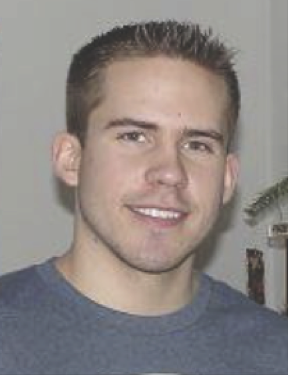 |
Jesper Kristensen Applied and Engineering Physics, Cornell University, Ithaca NY |
Uncertainty Quantfication with Surrogate Models in Alloy Modelling |









